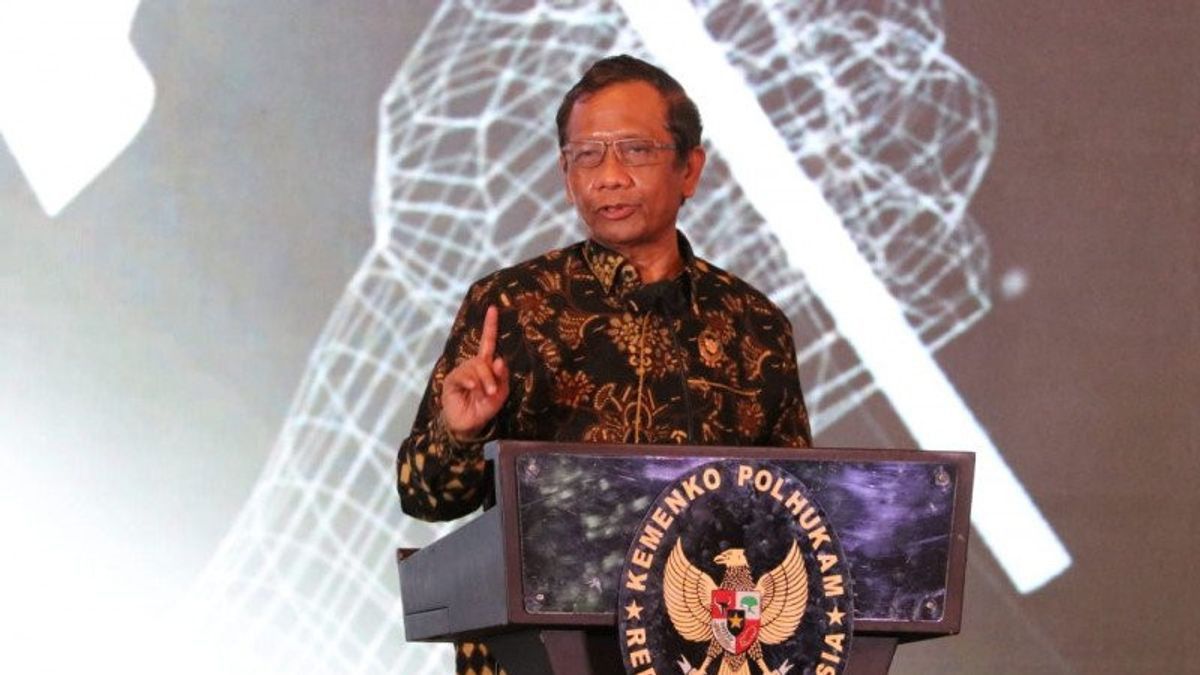JAKARTA - The Coordinating Minister for Political, Legal and Security Affairs (Menko Polhukam) confirmed that the agreement between Indonesia and Singapore would be ratified. The three agreements, namely the Flight Information Region (FIR), the agreement on the Defense Cooperation Agreement (DCE), and the extradition treaty are considered to be beneficial to the two countries.
"In our legal system, international treaties must be ratified. In order to be effective. Therefore, the government has decided to immediately process the ratification of the agreement, which must be submitted to the DPR," Mahfud said in a written statement to reporters, Wednesday, February 16.
Mahfud said that after the ratification was carried out, Indonesia would gain many benefits. One of them is related to law enforcement.
"Both countries certainly benefit from each other. And Indonesia itself will benefit, because we have many violations of criminal law where people then flee to Singapore or store their assets in Singapore. Later we can follow up for Indonesia's benefit in law enforcement," he said.
In addition, crimes against Indonesia in Singapore and vice versa can be immediately processed legally.
"There are crimes against Indonesia that are in Singapore, so they can be handed over to Indonesia to be tried or punished, then Indonesia can also return Singaporeans who committed crimes to be punished and tried in Singapore," said Mahfud.
"The government is certainly grateful that this agreement was finalized at the beginning of this year, because this is a long-standing problem. There was debate, there was a tug of war. Is this necessary, is this a package or not. Now everything is understood," added the former Chief Justice of the Constitutional Court. (MK).
As previously reported, Minister of Law and Human Rights Yasonna H. Laoly signed the Indonesia-Singapore Extradition Agreement in Bintan, Riau Islands some time ago. The agreement is useful for preventing and eradicating criminal acts that are cross-border in nature, such as corruption, narcotics, and terrorism.
Yasonna explained that the Indonesia-Singapore Extradition Agreement has a retroactive period (retroactive from the date of promulgation) for the past 18 years. This is in accordance with the provisions on the maximum expiration as stipulated in Article 78 of the Indonesian Criminal Code.
"This extradition agreement will create a deterrence effect for criminals in Indonesia and Singapore," said the Professor of Criminology at the Police College, Tuesday, January 25.
The types of criminal acts whose perpetrators can be extradited according to this Extradition Agreement are 31 types. Starting from corruption, money laundering, bribery, banking, narcotics, terrorism, and financing activities related to terrorism.
The English, Chinese, Japanese, Arabic, and French versions are automatically generated by the AI. So there may still be inaccuracies in translating, please always see Indonesian as our main language. (system supported by DigitalSiber.id)











